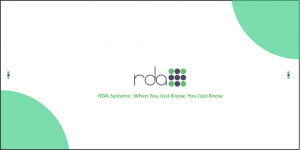Navigating the Request for Proposal (RFP) process can often seem daunting for organizations. The complexity and scope of RFPs demand precision and efficiency to ensure that organizations can secure the best services or products at the most favorable terms. This article outlines four strategic approaches that can significantly simplify the RFP process. By leveraging modern technology, standardizing templates, implementing clear evaluation criteria, and ensuring regular training, organizations can enhance their procurement strategies and improve outcomes.
1. Leverage Technology
Modern ERP systems revolutionize the RFP process in several ways:
- Centralized Communications: ERP systems centralize data, making it easily accessible and reducing the time needed to distribute RFPs. This integration ensures all responses are stored in one place, facilitating easier access and comparison, which is crucial for maintaining fairness throughout the bidding process.
- Automated Distribution and Alerts: These systems include communication tools that automate the distribution of RFPs and related communications, ensuring consistent information delivery. Automated alerts and reminders keep all stakeholders informed about deadlines and updates, helping to maintain the RFP timeline and improving response rates from vendors.
- Enhanced Interaction Tools: ERP systems facilitate seamless interactions between internal teams and external vendors, enhancing collaboration and minimizing inbox overload. This feature not only simplifies communications but also increases the engagement and quality of submissions.
- Compliance and Standardization: ERPs enforce compliance with industry standards and organizational policies during the RFP process. They allow for the standardization of RFP templates and documentation, speeding up the creation process and ensuring consistency across all procurement activities.
- Analytical Tools: ERP systems come equipped with robust analytical tools that enable detailed evaluations of RFP responses. These tools analyze vendor proposals based on predefined criteria, facilitating an objective and transparent selection process.
- Vendor Management: ERP systems include modules for sophisticated vendor management, maintaining a database of vendor information, performance history, and previous engagements. This simplifies the process of shortlisting vendors for specific projects based on historical data and performance metrics.
Incorporating ERP systems into the RFP process not only enhances operational efficiency but also provides strategic advantages by automating routine tasks, facilitating better communication, and providing a unified platform for data management. This enables organizations to focus more on strategic decision-making and less on administrative tasks.
2. Standardize Templates and Documentation
Using standardized RFP templates saves time and fosters consistency. Standardized documents ensure that all necessary information is covered uniformly across all RFPs, reducing errors and omissions. This practice not only streamlines the creation process but also speeds up the review period as evaluators become familiar with the format, according to Inbound Logistics. Clear, consistent documents make it easier for vendors to understand and meet the project’s requirements, leading to more accurate proposals.
Moreover, standardized templates can be tailored to include essential legal and procedural terms, which helps in mitigating risks associated with contractual agreements. Ensuring that these critical elements are always included in your RFPs protects your organization and clarifies expectations for all parties involved. This level of detail and uniformity can lead to smoother negotiations and more successful partnerships.
3. Implement Clear Evaluation Criteria
Defining clear evaluation criteria simplifies the proposal review process significantly. Establishing a points-based system as recommended by Econsultancy ensures that each response is judged objectively, facilitating fair and consistent decision-making. This clarity helps in minimizing biases and disputes during the evaluation phase, leading to quicker consensus and decision-making.
Additionally, clear criteria allow vendors to understand exactly what is expected of them, which can improve the quality of the proposals received. Vendors are more likely to focus their responses on meeting or exceeding the specific requirements, which can make the selection process more straightforward and reduce the need for follow-up clarifications.
4. Schedule Regular Training and Updates
Regular training sessions are essential to keep the RFP team updated on best practices and software use. These training programs ensure that team members are proficient in using the latest tools and techniques, which can enhance the efficiency of the RFP process. As pointed out by Cafe Progressive, keeping the team well-informed and skilled can prevent common mistakes and delays associated with the handling of RFPs.
Continuous education on updates and new features of the RFP management software enables the team to take full advantage of technological advancements. This proactive approach not only boosts productivity but also ensures that the organization remains competitive in its procurement strategy. Training in new features and functionalities can lead to further process optimizations, making the RFP process even more streamlined and effective.
Enhancing Efficiency through Simplified RFP Processes
The RFP process is a critical component in the procurement of services and systems that can determine the operational efficiency of an organization. Effective RFP management not only streamlines procurement but also optimizes resource allocation, minimizes risks, and promotes transparency. This contributes to building stronger, more competitive business operations that can adeptly manage complex projects and vendor relationships.
Each of these strategies outlined above not only simplifies the RFP process but also aligns with best practices that can lead to more successful partnerships and project outcomes. For those looking to further improve their RFP processes with advanced ERP solutions, RDA Systems offers tailored, efficient tools designed to meet the unique needs of small schools and local governments. Our team is ready to assist you in harnessing the power of modern ERP systems to transform your procurement strategy and operational success.
Get in touch with RDA Systems today to discover how we can help you simplify and succeed.





